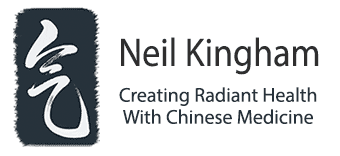Chinese Medicine For Inflammatory Bowel Disease (IBD)
Inflammatory Bowel Disease is an umbrella term for 2 different conditions that both feature chronic inflammation of the digestive tract: Crohns disease and Ulcerative Colitis
Note: IBD is very different to ‘Irritable Bowel Syndrome’ or IBS, which is a non-specific diagnosis often given to people with digestive problems once Inflammatory Bowel Disease and other conditions are ruled out
Symptoms of both Crohn’s Disease and Ulcerative Colitis include
- Diarrhea
- Fever and fatigue
- Abdominal pain and cramping
- Blood in your stool
- Reduced appetite
- Unintended weight loss
If untreated, they can both become quite serious.
Conventional Treatment of IBD
IBD is normally treated with anti-inflammatory drugs such as mesalamine, sulfasalazine and corticosteroids which decrease inflammation of the digestive tract. However, they have many side effects.
If those don’t work, immune suppressants are normally the 2nd line of treatment – these prevent the immune system from attacking the bowel and causing inflammation. Immune suppressants can have many side effects, including rashes and infections.
Antibiotics are also used to kill bacteria that may trigger or aggravate IBD symptoms. However, these drugs also kill beneficial bacteria in the gut and are not a long term solution.
Chinese Herbal Medicine for IBD
Herbal medicine can often be very good for problems that relate to digestion and elimination as Chinese herbs are taken in the form of a tea, which needless to say gets straight in to the problem area.
As always, treatment is individualised, and herbal formulas are unique to each person. As a IBD is chronic and generally has a complex symptom pattern, the herbal formulas are sometimes quite complicated, maybe containing 12-15 or even up to 20 different ingredients.
The herbs work by strengthening the digestive process, as well as clearing and balancing the system to reduce symptoms in the short term, and restore correct functioning in the long term.
Acupuncture for IBD
Acupuncture can also be a useful treatment for IBD, as it has a regulating and balancing effect, and can help to calm the symptoms of the disease.
For instance, American authors (in Inflamm Bowel Dis. 2018 Dec 11.) have reviewed the mechanisms of action of acupuncture that benefit patients with inflammatory bowel disease (IBD). They explain that acupuncture has been shown to decrease disease activity and inflammation in IBD by affecting vagal control of the immune response, and via non-immune effects that can positively modulate the gut microbiota and improve gut barrier function.
They discuss the beneficial roles demonstrated by acupuncture in the regulation of gut dysbiosis, intestinal barrier function, visceral hypersensitivity, gut motor dysfunction, depression, anxiety and pain, all of which are factors that can significantly impact quality of life in patients with inflammatory bowel disease.
In my Bristol Chinese Medicine Practice I often use both acupuncture and herbal medicine together for the best and quickest effect, and find that the 2 treatments complement each other very well.









